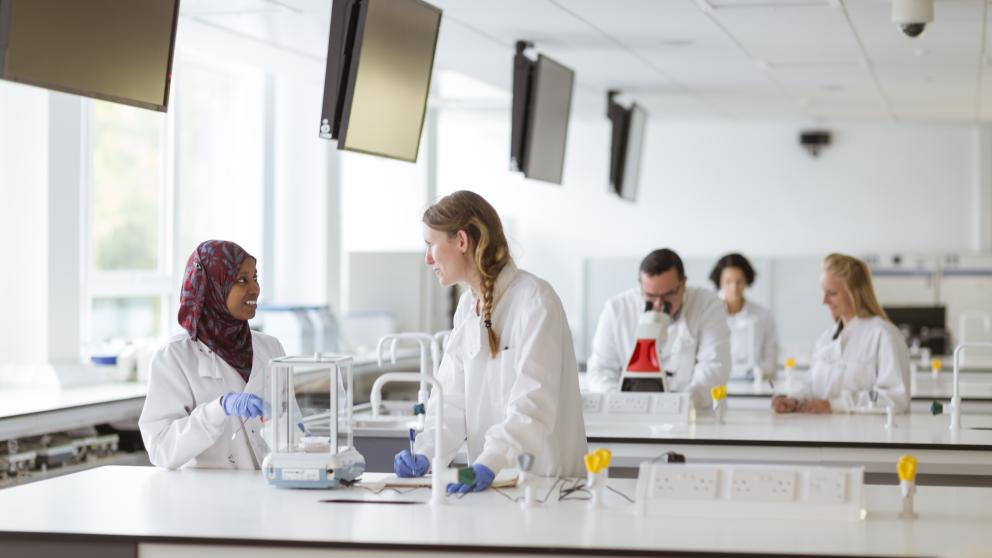Laboratory Efficiency Assessment Framework (LEAF)
LEAF stands for Laboratory Efficiency Assessment Framework. Developed by UCL, the programme works to enhance the efficiency of labs resulting in more sustainable practices. By engaging in the LEAF programme, laboratories reduce their carbon emissions, overall resource consumption and waste making them more sustainable in their practices.
LEAF has three levels going from Bronze to Silver to Gold, with each level requiring more actions and a greater commitment to sustainability.
LEAF at University of Salford
At the University of Salford, we are committed to sustainability across the entire campus. As a signatory to the Concordat for Environmental Sustainability in Research and Innovation, whilst we conduct research that supports our environment and enhances sustainability, we need to also ensure our research is conducted sustainably.
The LEAF programme helps to support this by providing a framework laboratories can adhere to which ensures procedures, equipment and research are conducted sustainably.
University of Salford currently has two labs with LEAF Bronze (Environmental Lab and Megalab Teaching Lab) and are working to have all labs at the University running as sustainably as possible. Our labs that have attained Bronze are already looking at actions they can take that are required for Silver and Gold LEAF accreditation.
How can you get involved?
Staff
If you are a lab tech at the University, you can help by getting involved in LEAF through supporting the sustainable practices which need to be conducted to meet the LEAF criteria. This can be by looking at your daily practices and how the lab is being run and where there could be savings in energy, resources and reductions in waste.
If you are teaching staff at the university, you can support LEAF by working with the tech team to ensure experiments and sessions are planned effectively to ensure waste and resource reduction is considered. You can also support at the adoption of LEAF by ensuring students are aware of the correct procedures around the lab following SOPs effectively. This can help make sure that things such as waste streams are followed effectively and that experiments can be run with minimal wastage.
Students
As a student you can be mindful of the impact your experiments and research can have on the environment. This could be via planning experiments to reduce the use of products and waste and making sure you are familiar with experiment plans to avoid mistakes which could result in wastage.
Contact the Sustainability Team sustainability@salford.ac.uk to get involved.
Sustainable Lab considerations
If you conduct work in a lab, either as research, teaching or learning, there are some points below which can be considered to help you make your lab work sustainable.
- Follow waste rules: As part of LEAF, our lab techs have provided useful waste instructions, so you know how best to dispose of your lab waste. By making sure you follow these instructions, you can help make sure that waste is being disposed of and recycled properly.
- Plan experiments: By planning experiments efficiently, you can consider what resources you need to use. Are there ways you can conduct your tests which require less resources but just as good results? Are there others you can share resources or equipment with such as using centrifuges or autoclaves at the same time?
- Know the plan: By knowing what you will be doing in your experiments, you can be confident in your technique. Read your SOPs and experiment instructions carefully to help avoid mistakes which could result in waste.
- Switch off: All equipment which can and should be turned off after use will have a label on saying to switch them off. Make sure you turn off whatever you’re not using after you’ve used it. If you’re ever unsure, as a lab tech or tutor.
- Share: Consider with your lab mates where you could share or combine resources and equipment. Are there others who need similar products which can be bulk ordered collectively. Can you run multiple samples in the same equipment to reduce energy use.

